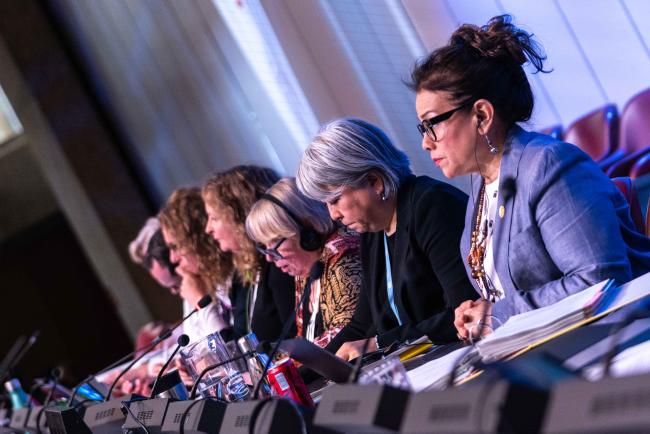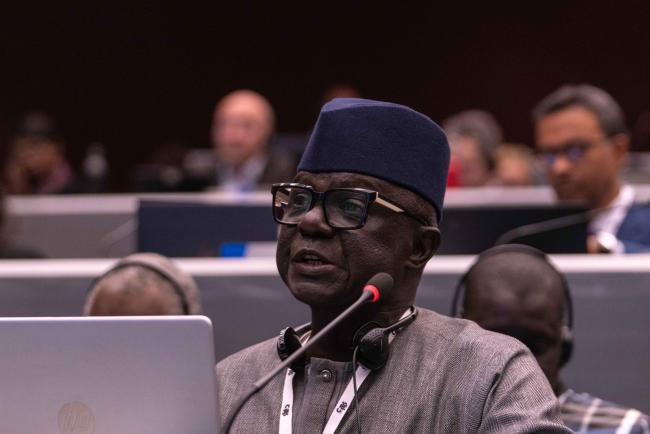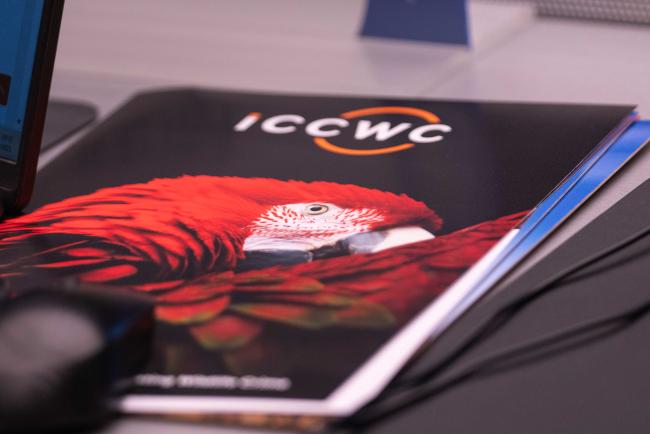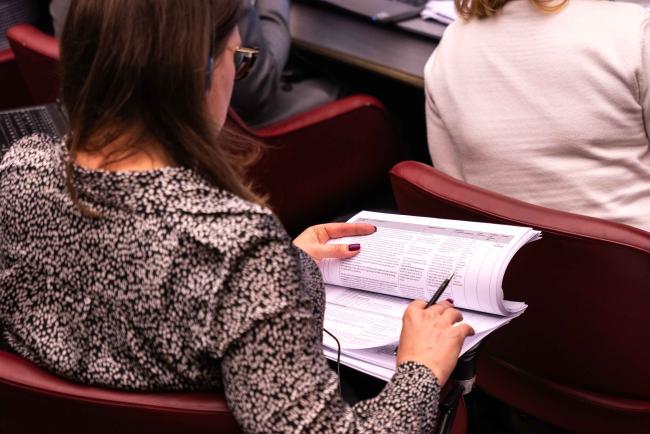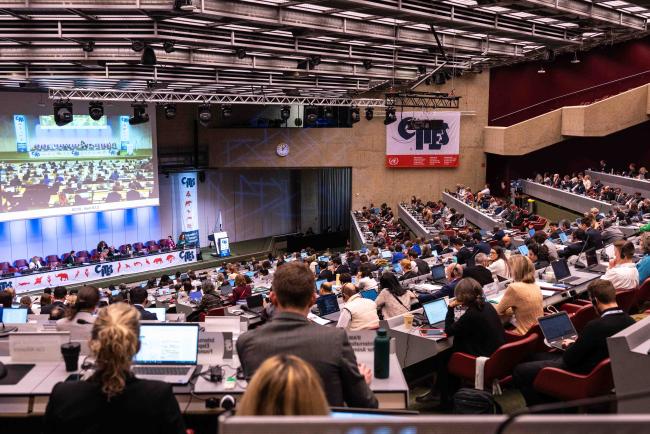Compliance matters dominated Tuesday's agenda at the 78th meeting of the Standing Committee (SC) for the Convention on International Trade in Endangered Species of Wild Fauna and Flora (CITES). Delegates considered illegal trade in African grey parrots, Southeast Asian tigers, and an endangered tree species native to the Sahelian region of West Africa.
Parties in non-compliance with Article XIII of CITES updated the SC on progress made in terms of legislation, enforcement, and traceability. Still, several NGOs expressed concern about the conservation status of these and other species and called for compliance measures to largely stay in place, stressing the need to fight corruption linked to wildlife crime at all levels, and to reduce demand for wildlife products.
Among CITES Appendix II-listed species threatened as a result of illegal commercial trade is the oceanic whitetip shark (Carcharhinus longimanus). Calling attention to a letter submitted to the Secretariat by the Maldives, New Zealand highlighted concerns that trade in this species seems to be occurring without CITES permits, or with CITES permits apparently issued without the required legal acquisition findings (LAFs). A drafting group was established to come up with wording to request the Secretariat to investigate this compliance issue.
By mid-morning on Tuesday, the SC had completed Monday’s unfinished agenda items and began tackling Tuesday’s. By noon, it was clear this game of perpetual working programme catch-up is likely to continue at SC78. “We’re half a day behind,” SC Chair Rosmarie Gnam announced at the lunch break. “Let’s try to catch up this afternoon.”
But catching up in the afternoon proved impossible. Discussions were lengthy for the fourteen ongoing cases of review of trade in animal specimens reported as produced in captivity. There was some debate over terminology: whether to refer to “founder” versus “breeding” or “parental” stock. Delegates ultimately settled on retaining the original “founder” stock language from the relevant resolution.
One of the more difficult cases reviewed was the proposed suspension of trade in crab-eating macaque (Macaca fascicularis) in Cambodia. There was significant discussion on this proposed ban, with some parties deeming it premature, others requesting a Secretariat mission to verify the data provided by Cambodia, and still others suggesting an intersessional working group look into the issue. A drafting group was set up to review the issue further.
In seemingly brighter news to end the day, discussion of a report on the implementation of the Resolution 10.10 on trade in elephant specimens highlighted an encouraging downward trend in the proportion of illegally killed elephants (PIKE) and an increase in seizures. Parties commended the efforts of African elephant range states and others in supporting actions, including anti-poaching measures, to create and maintain this positive trend. However, several parties rang an alarm bell on the uptick in large scale seizures of ivory, pointing to leaks in stockpile management.
To receive free coverage of global environmental events delivered to your inbox, subscribe to the ENB Update newsletter.
All ENB photos are free to use with attribution. For SC 78, please use: Photo by IISD/ENB | Mika Schroder.

